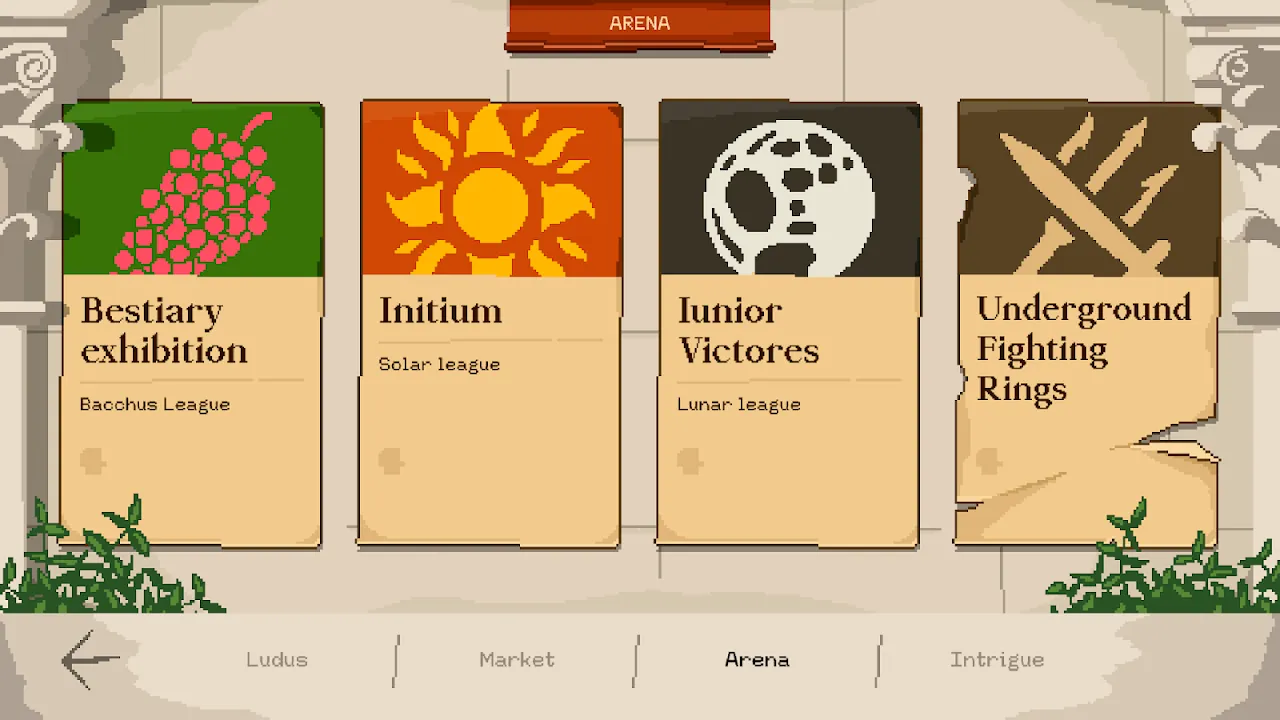Gladiator Manager: Forge Legends in Rome's Deadly Arena Circuit
Staring blankly at another mindless match-three game, I craved strategy with teeth—something where choices carved permanent scars. Then Gladiator Manager pierced through the digital noise. Suddenly I wasn't just tapping screens; I was breathing sawdust and blood in the Circus Maximus, my palms sweating as my champion faced execution. This isn't entertainment. It's survival.
Weeks dissolved into managing every heartbeat of my ludus. Unique traits transformed roster building into psychological chess. When I recruited a hotheaded Thracian, his tendency to ignore shields nearly doomed us—until I paired him with a stoic defensive fighter whose calm presence tempered those wild strikes. The first time they synchronized perfectly, dodging a net while landing twin hammer blows, I actually stood up from my couch, pulse racing like I'd fought alongside them.
Technique-based combat planning became my late-night obsession. During a rainy Tuesday commute, I restructured my entire lineup after realizing spearmen could exploit arena corners. Next tournament, watching my frailest gladiator pin a brute against marble walls using precisely that tactic, I choked back a shout of triumph in the crowded train. Every weapon choice felt physical—the weight of a trident versus the quick slice of a sica dagger translated directly into victory margins thinner than parchment.
But Rome's cruelty lies beyond the sand. Corruption mechanics forced me into moral twilight. I still remember bribing an editor to sabotage a rival's star fighter before finals. The notification "Marcus has developed a suspicious fever" filled me with icy satisfaction... followed by visceral guilt when his owner's plea for a medic appeared on my screen. You don't just manage fighters; you wrestle your own conscience.
Permanent consequences made victories ache. After my beloved veteran Secunda fell to a Numidian's curved blade, I stared at her empty barracks slot for ten silent minutes. No reloads. No mercy. That hollow feeling? That's the game teaching you what real loss costs. Now I scout replacements with paranoid intensity, examining every recruit's old scars like grim prophecies.
Estate development became my sanctuary between tournaments. Expanding the infirmary after three straight injury reports felt profoundly human—less menu navigation, more desperately building safety nets. When raiders torched my granary during a winter event, the scramble to reassign guards while fighters healed created more tension than any battle. You don't just grow buildings; you nurture fragile ecosystems of ambition.
Dawn light filters through my kitchen window as I orchestrate a final raid before work. The scent of coffee blends with imagined sweat and iron when my scout returns wounded but bearing intelligence on enemy formations. My thumb hovers over the "Assassinate" button targeting a rival lanista—knowing success means safer matches for my team, failure means retaliation. This constant knife-edge calculation lives in your muscles long after closing the app.
For all its brilliance, the learning curve bites hard. Early on, misallocated influence points left me unable to afford vital gear before championship qualifiers—a week of progress evaporated. And while gems earned through achievements feel rewarding (unlocking the Greek hoplite tournament after months felt like genuine conquest), the pacing occasionally frustrates. I once abandoned a perfect run because upgrading the barracks took three real-time days. Still, the purity of no ads or pay-to-win mechanics soothes those stings. When my underdog gladiator toppled a gem-bought champion through sheer tactical cunning, the rush vindicated every grind.
Perfect for history-obsessed strategists who want their decisions carved in stone—not erased by the next microtransaction. Just beware: you'll start eyeing office politics like arena schematics, and that lingering urge to bribe your barista? Blame Rome.
Keywords: gladiator management, tactical RPG, permadeath mechanics, Roman strategy, resource simulation















